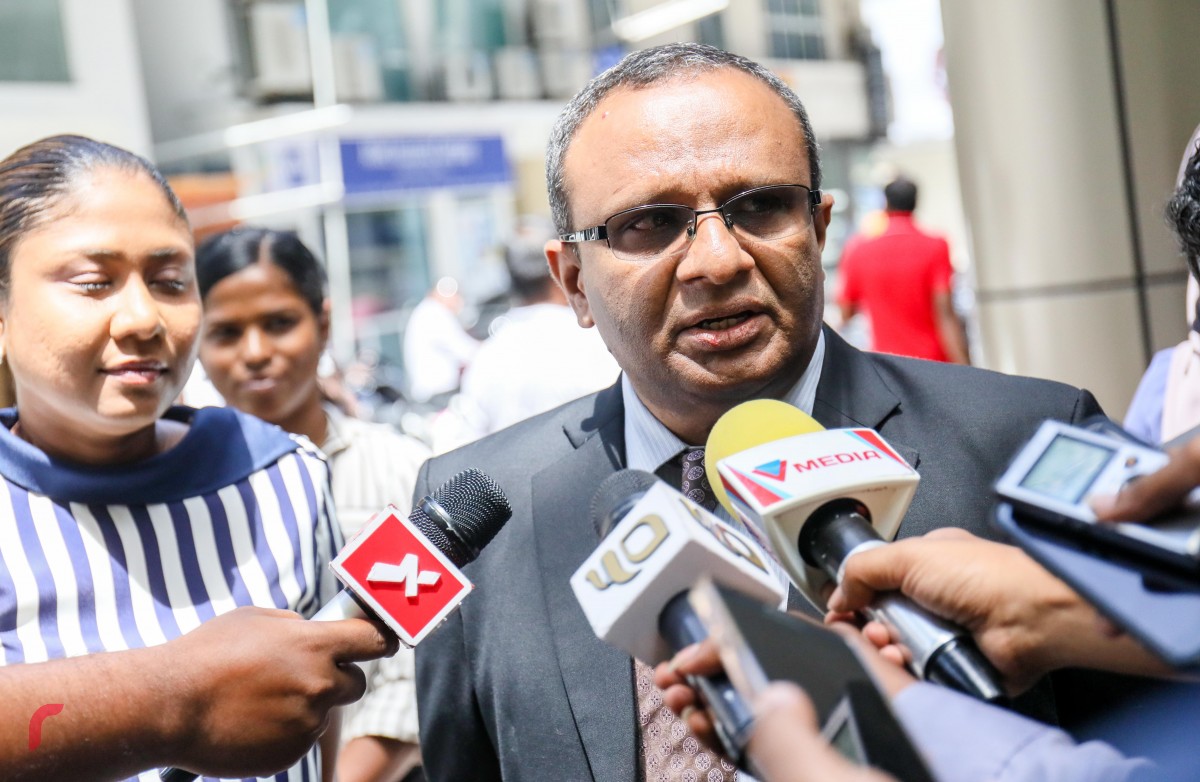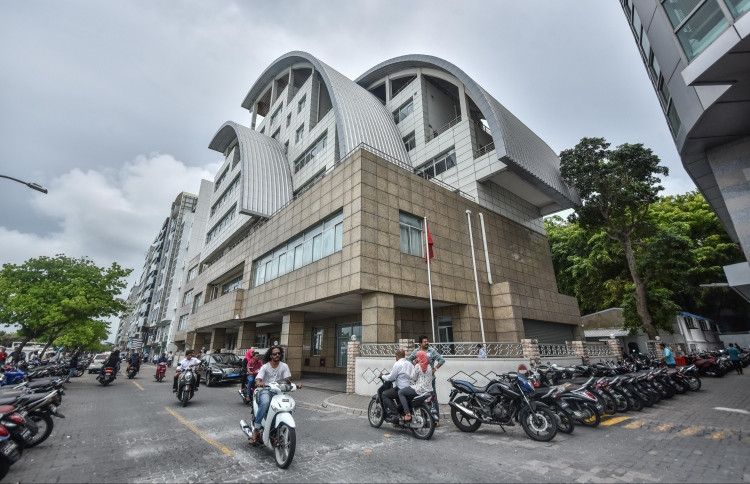Ex-AG Suood slams JSC efforts for judge pay hike
Suood expressed his belief that reviewing the salaries of judges is less important than investing in improving court facilities


Former Attorney General Husnu Suood
Former Attorney General Husnu Suood has criticized the bill proposed this week seeking to increase salaries of judges adjudicating at local courts.
In a tweet on Tuesday, Suood expressed his belief that reviewing the salaries of judges is less important than investing in improving court facilities.
Suood’s tweet translates to, ‘I do not think the salaries of judges need to be increased, it is far more important that court facilities be improved’.
The former attorney general has sat as a Civil Court judge as well, and currently presides over President Ibrahim Mohamed Solih’s Commission on Investigation of Murder and Enforced Disappearances.
The Judicial Services Commission (JSC) forwarded a draft bill seeking to adjust these salaries, along with a letter signed by JSC chief Abdulla Areef.
Areef said in his letter that the salaries paid to judges, set in 2010, is insufficient; the decision to form the draft bill and forward it was made by a JSC committee on the employment of judges.
Overview of salaries paid to judges (monthly):
- Supreme Court Chief Justice – MVR 73,125, with medical insurance of MVR 12,500 Justices – MVR 71,000, with medical insurance of MVR 12,500
- Chief Justice – MVR 73,125, with medical insurance of MVR 12,500
- Justices – MVR 71,000, with medical insurance of MVR 12,500
- High Court Chief Judge – MVR 56,300, with medical insurance of MVR 4,750 Judges – MVR 54,300, with medical insurance of MVR 4,750
- Chief Judge – MVR 56,300, with medical insurance of MVR 4,750
- Judges – MVR 54,300, with medical insurance of MVR 4,750
- Criminal Court Chief Judge – MVR 49,300, with medical insurance of MVR 4,750 Judges – MVR 48,300, with medical insurance of MVR 4,750
- Chief Judge – MVR 49,300, with medical insurance of MVR 4,750
- Judges – MVR 48,300, with medical insurance of MVR 4,750
- Civil Court Chief Judge – MVR 47,650, with medical insurance of MVR 4,750 Judges – MVR 46,650, with medical insurance of MVR 4,750
- Chief Judge – MVR 47,650, with medical insurance of MVR 4,750
- Judges – MVR 46,650, with medical insurance of MVR 4,750
- Juvenile Court Chief Judge – MVR 47,650, with medical insurance of MVR 4,750 Judges – MVR 46,375, with medical insurance of MVR 4,750
- Chief Judge – MVR 47,650, with medical insurance of MVR 4,750
- Judges – MVR 46,375, with medical insurance of MVR 4,750
- Family Court Chief Judge – MVR 47,375, with medical insurance of MVR 4,750 Judges – MVR 46,375, with medical insurance of MVR 4,750
- Chief Judge – MVR 47,375, with medical insurance of MVR 4,750
- Judges – MVR 46,375, with medical insurance of MVR 4,750
- Magistrate Courts Constituency Chief Magistrate – MVR 27,950, with medical insurance of MVR 4,750 Court Chief Magistrate – MVR 25,600, with medical insurance of MVR 4,750 Magistrates – MVR 23,450, with medical insurance of MVR 4,750
- Constituency Chief Magistrate – MVR 27,950, with medical insurance of MVR 4,750
- Court Chief Magistrate – MVR 25,600, with medical insurance of MVR 4,750
- Magistrates – MVR 23,450, with medical insurance of MVR 4,750
Parliamentarians on Tuesday discussed the bill and agreed that a decision on the draft bill should be made by lawmakers elected to the next parliament tenure, who take their oaths of office in late May.
Komandoo constituency MP Ahmed Nashid, chair of the public finances committee, said that the Maldivian Democratic Party (MDP), which acquired a majority in the parliamentary election held in April, has plans for significant judicial reform, and that the decision should be made by lawmakers implementing their manifesto.
Feydhoo MP Ibrahim Didi also agreed that the next parliament tenure should decide on reviewing the salaries of judges, while North-Kulhudhuffushi MP Abdul Ghafoor Moosa said that the JSC’s draft bill will be considered after reviewing the salaries of the civil service.
On the matter of reviewing judges’ salaries, MDP proposed in their manifesto ahead of the parliamentary election that their pay may only be reviewed in accordance to their performance.
Judges are also required to provide comprehensive financial statements and failure to do so could result in criminal indictment, following investigation.
MDP has proposed separating the Department of Judicial Administration from the Supreme Court, and vesting it with the autonomy of an independent state institution, overseen by an administrator appointed by parliament, who in turn will appoint and dismiss registrars at local courts.
The party also proposes that the registrar will have full authority to decide which cases are accepted and put before the court, with judges having authority to appeal against the decision of the registrar; judges now have the final say on what matters are accepted.
MDP also proposes to remove the 10-day appeal period, which itself is said to be a political move made to penalize the political rivals of former president Abdulla Yameen. The 10-day cap was placed during the prosecution of former president Mohamed Nasheed on terrorism charges widely considered to be arbitrary.
The most sweeping change towards transparency may be MDP’s proposal to open Supreme Court proceedings on constitutional matters to the public.






